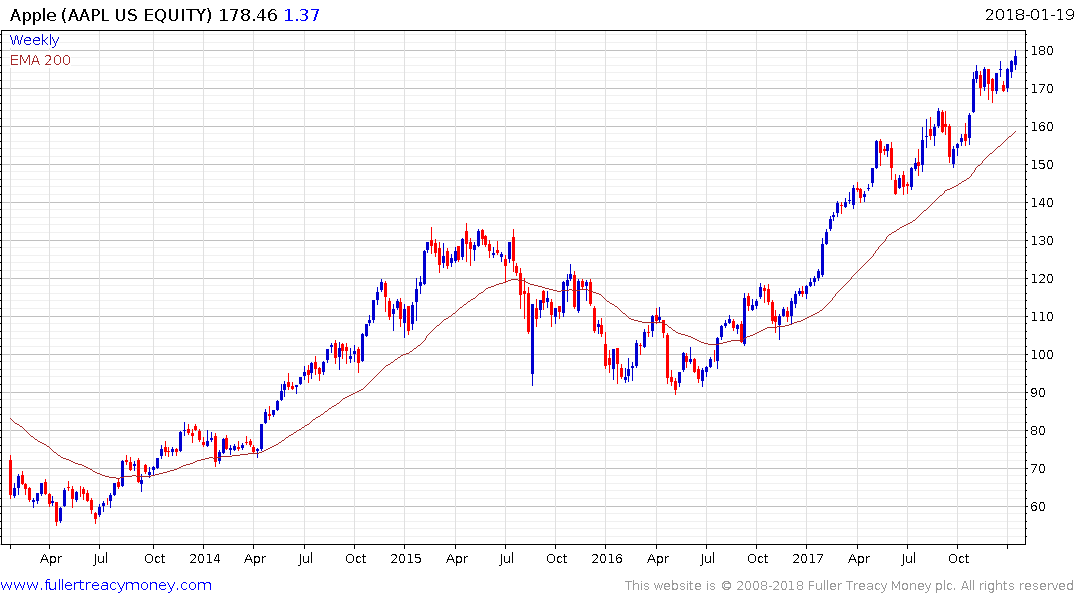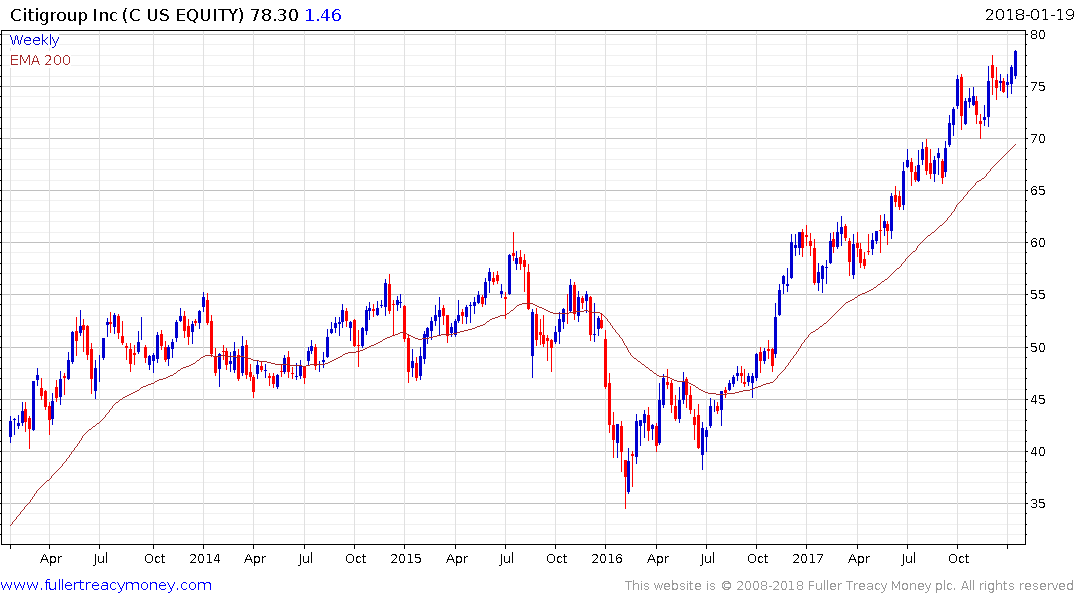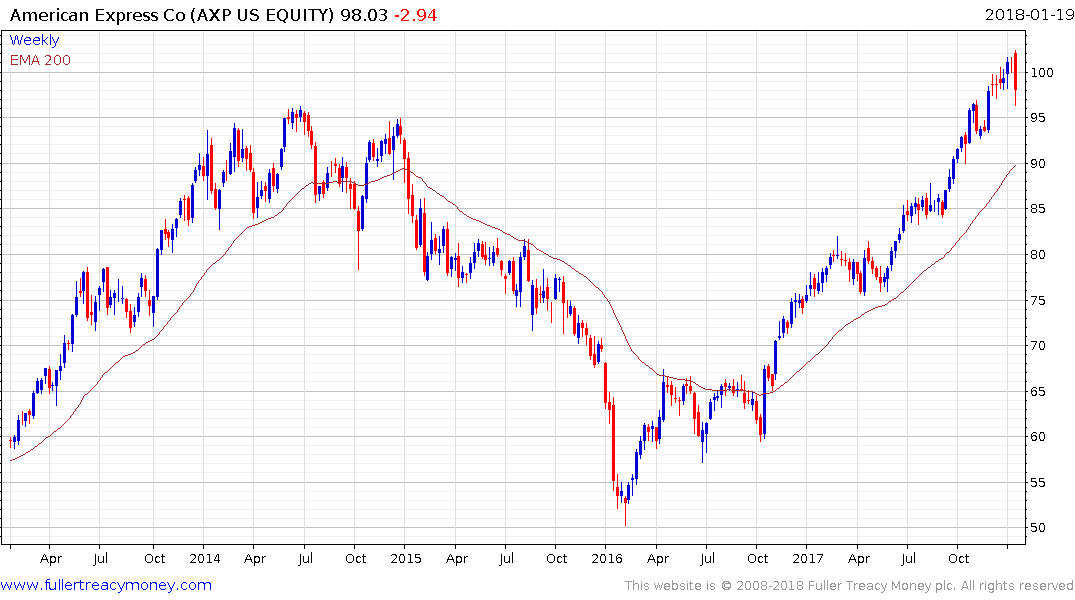Imaginary Taxes Can Have Real Consequences
This article by Matt Levine at Bloomberg does a good job of explaining the different impact on various companies of the tax changes. Here is a section:
Deemed repatriation is significantly less fictional than remeasurement of deferred tax assets. Under the old tax system, U.S. companies were taxed on all of the income they earned everywhere, but only when they brought it back to the U.S.; they could defer taxes on foreign income by keeping it offshore. The new tax system is mostly territorial -- U.S. companies pay U.S. taxes on U.S. income and foreign taxes on foreign income -- but there is a one-time "toll tax" on foreign income previously earned abroad. That tax is at a much lower rate than the old (or new) corporate tax rate -- 8 or 15.5 percent instead of 35 (or 21) percent -- but it has to be paid over the next eight years, whether or not the money is actually brought back onshore. So, for companies that were planning to keep their foreign profits offshore forever, this is an actual new cost. (For companies like Apple Inc. that had already accounted for the cost of bringing the money back at 35 percent, though, it creates an accounting profit.) American Express really will have to pay that $2 billion of taxes over the next eight years. Perhaps it would have ended up paying more than that anyway under the old regime, if it had brought the money back, but it will definitely pay that much under the new regime. So, it needs to find $2 billion, and that is money that it cannot pay out to shareholders.
Apple has decided to bring its money home so it will pay the tax on it and is hoping to boost its domestic image by hiring more people and building a new campus much as Amazon is doing. For Citigroup the tax code change is an accounting fillip but nothing more, while for companies like Amex it is rather meaningful.
This ambiguity highlights the array of possible outcomes companies face based on their foreign exposure. I saw a report by David Rosenberg, which comes with some pretty dire warnings about reproducing it, which said about half of S&P500 earnings come from overseas. That suggests this earnings season is likely to exhibit a high degree of variance between winners and losers from the change. 
Apple broke out to new highs this week but has not following through on the upside so far. Nevertheless, a clear downward dynamic would be required to check the consistency of the medium-term uptrend.

Citigroup has been trending higher in a reasonably consistent manner for more than a year and hit a new closing high today.
 American Express just about doubled from the 2016 lows but posted a downside weekly key reversal this week from the psychological $100 level to mark a peak of at least near-term significance.
American Express just about doubled from the 2016 lows but posted a downside weekly key reversal this week from the psychological $100 level to mark a peak of at least near-term significance.


